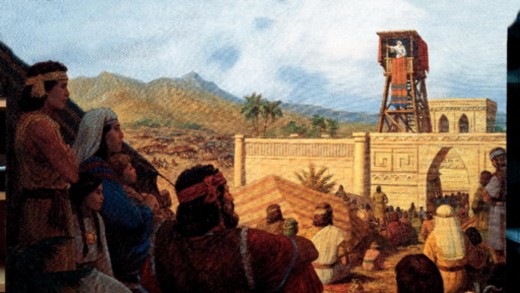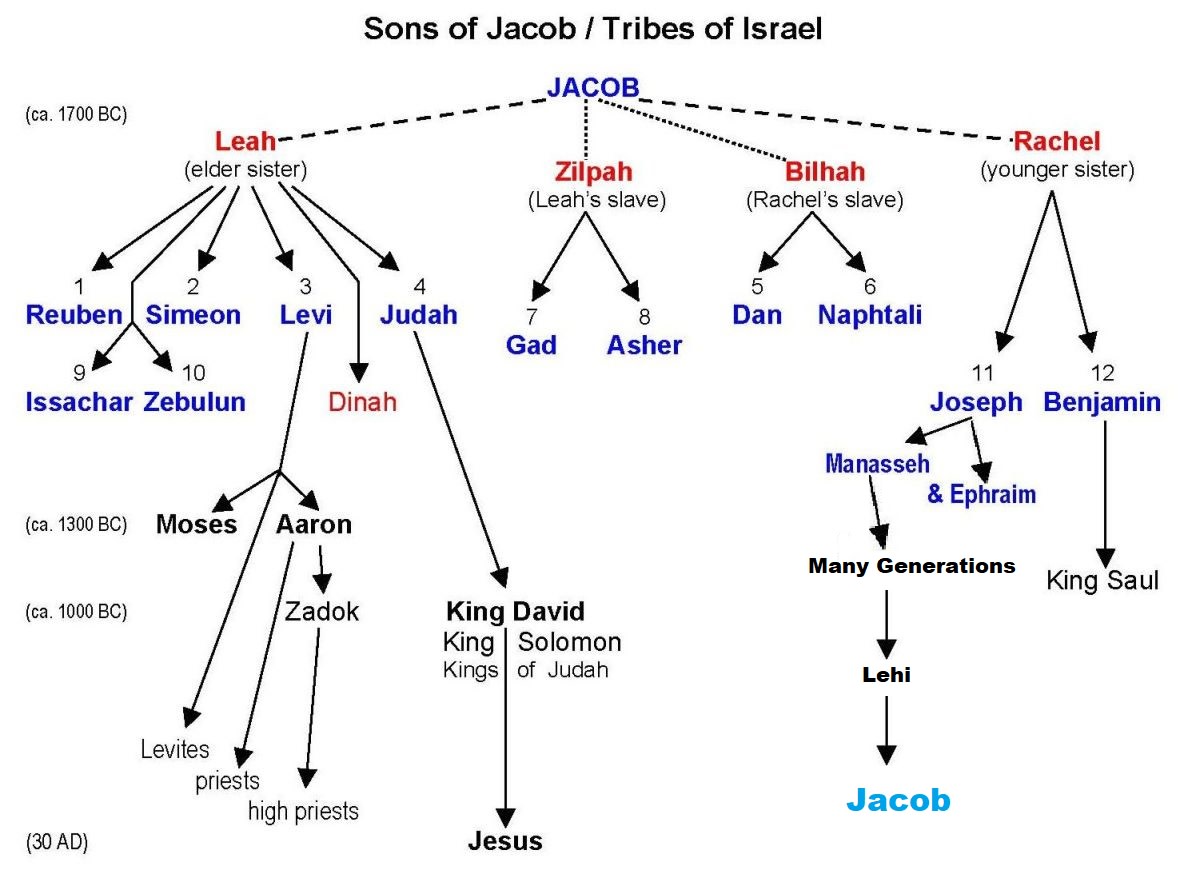King Benjamin and True Freedom: Liberty Through Faith and Works (Episode Five)
Freedom is a right, a heritage of the citizens of the United States of America by virtue of their birth in US territory. This does not suppose that freedom is not a right of each human being no matter where they live on the planet.
All the people of the world should enjoy certain freedoms as their birthright into the human species. Americans, however, are known for freedom, in theory, if not in practice, as a legacy of the Declaration of Independence and the Constitution.
Just as we saw in the last account, King Benjamin’s Call to Believe in God: Faith in His Power, Wisdom, and Mercy (Episode Four), King Benjamin had already led his people to recognize their dependence on God and act upon their belief. That foundation prepared them for his next teaching—a message about a higher form of liberty. His legacy of freedom was not etched in political charters, but in the hearts of those freed from ignorance and sin through the love of God.
King Benjamin, an ancient king who lived upon the Americas, wanted to have a legacy of freedom also—one that freed his people from ignorance of the love of God. This article highlights the teachings of King Benjamin regarding the freedom of those who do and believe the word of God.
Freedom from Spiritual Bondage

King Benjamin and the Eternal Ripple Effect: Leaving a Legacy of Righteous Influence
Doers of the word are instructed to continue always because of the good that flows from righteous works, as opposed to the emptiness of doing nothing.
Harold G. Hillam of the First Quorum of the Seventy in The Church of Jesus Christ of Latter-day Saints once shared a sobering story. In a meeting he attended years ago, a woman revealed that she had completed her family history and discovered that her great-grandfather had over 1,000 descendants.
Sadly, this ancestor had left the faith, and out of all those hundreds of posterity, she was the only one who faithfully partook of the gospel of Jesus Christ in its fullness.
Elder Hillam reflected:
When we see the effect one person can have on the lives of so many, it perhaps is no wonder that the Lord reminded us, “Remember the worth of souls is great in the sight of God” (D&C 18:10).
He then issued a heartfelt challenge:
I pray we all might consider what we can do individually to assist those who will be the future [lost souls]—whether a little child, a teenager, or an adult—so that each will leave a righteous legacy of those who know and love the Lord. [1]
Following the example of Jesus Christ, disciples must be doers of the word—becoming saviors to all we assist in accepting Him. Those who fail to act may inadvertently be the reason hundreds or thousands never hear the gospel message. Elder Hillam’s story gives weight to the reality that one individual’s influence can ripple across generations.
King Benjamin stressed doing the word of God not only for personal salvation but also for the salvation of others. By preaching to his people and calling a general conference of his kingdom, he left a righteous legacy—a legacy that still teaches us today about the worth of souls and the eternal impact of faithfulness.
King Benjamin Addressing the People

Both faith and works are companions when it comes to the salvation of humanity.
Faith and Works: King Benjamin’s Call to Active Discipleship
King Benjamin taught that people must labor to obtain salvation. Works without faith are as empty as faith without works is lifeless. The prophet James declared:
Ye see then how that by works a man is justified, and not by faith only. Likewise also was not Rahab the harlot justified by works, when she had received the messengers, and had sent them out another way? For as the body without the spirit is dead, so faith without works is dead also. [2]
Faith and works are inseparable companions in the salvation of humanity. One without the other leaves a disciple incomplete—belief must inspire action, and action must be rooted in belief.
King Benjamin’s Call to Remember God’s Power and Atonement
Benjamin reminded his people of the tremendous personal spiritual experience they had during his sermon—so profound that it caused them to faint in awe. He said:
I say unto you, if ye have come to a knowledge of the goodness of God, and His matchless power, and His wisdom, and His patience, and His long-suffering towards the children of men... also, the atonement which has been prepared from the foundation of the world.... [3]
He wanted them never to forget the reality of God’s goodness, the depth of His patience, and the eternal scope of the Atonement prepared before the world began.
King Benjamin Plants Seeds of Faith After a Pentecostal Moment
The first set of conditions King Benjamin instructed were the things of which believers must develop knowledge and remember: the goodness of God. The fact that He provides a plan of salvation for all humanity reveals His goodness towards mankind, His love. Speaking to a group of his subjects who had just experienced a Pentecostal-like moment—falling to the earth as the Spirit of the Lord came upon them, pleading for mercy through the atoning blood of Christ, and receiving a remission of their sins—Benjamin had fertile ground in which to plant the seeds of faith.

God’s Goodness and the Gift of Repentance
Elder Robert D. Hales, in a heartfelt sermon given soon after surviving a heart attack in 1992, testified:
The Atonement brought mercy through repentance to balance justice. How thankful I am for the doctrine of repentance. Repentance is essential to salvation.[4]
The goodness of God is manifest in this—that He sent humanity to earth and provided a way for us to be saved from death and hell (eternal separation from God the Father).
God the Father chose to shape our mortal bodies in His own image and grant them to His spirit children as a sacred trust, a mortal experience in which to learn and grow toward becoming as He is. Is that not good?
Depiction of King Benjamin Addressing the Nephites
Jesus used power or love to endure the pains He suffered in the Garden of Gethsemane.

King Benjamin wanted his subjects to understand that remembering the power of God to reverse sin was imperative for their salvation.
The Power of God’s Love That Overcomes All
Benjamin spoke about the power of God—a power both profound and beautifully simple. It is the power of pure, perfect love. God holds power over all things in the universe because all things obey Him, moved by His influence of love, His divine grace, and His perfect justice.
In 2004, John H. Groberg of the Quorums of the Seventy of The Church of Jesus Christ of Latter-day Saints testified of the immensity of God’s love, which is also His power:
Jesus Christ was filled with unfathomable love [Power] as He endured incomprehensible pain, cruelty, and injustice for us. Through His love [Power] for us, He rose above otherwise insurmountable barriers. His love [Power] knows no barriers. He invites us to follow Him and partake of His unlimited love [Power] so we too may rise above the pain and cruelty and injustice of this world and help and forgive and bless.[5]
Jesus drew upon this divine power—this divine love—to endure the agony of Gethsemane. He bore the cross to the end of His mortal mission because love gave Him the strength to do so. The word of God’s power is love. Christ is the word of God’s power. Christ is love, and love is power.
King Benjamin wanted his people to understand that remembering the power of God to reverse the effects of sin was essential to their salvation. Recognizing His authority would enable them to repent and be forgiven. The power of God reigns over life and death itself because His love for humanity is infinite.
Let Freedom Reign—Let Freedom Ring in Christ
Freedom from despair, sin, and death lies at the very heart of the Gospel of Jesus Christ. Life’s purpose is not about God gathering adoring creatures to stroke His ego. It is about preparing to meet God—not merely by way of introduction, but by obtaining the power and love He offers as our eternal heritage in Christ.
Through His Son, God’s plan is to extend to all humanity the same joy and glory He Himself enjoys—if we are willing to do as Jesus Christ did: being "willing to submit to all things which the Lord seeth fit to inflict upon [us], even as a child doth submit to his father" (Mosiah 3:19).
Just as King Benjamin’s words freed his people from ignorance and taught them to reign in life through Christ, his witness would not end with a call to freedom. In the next part of his sermon—King Benjamin’s Witness of the Atonement of Jesus Christ (Episode Six)—he turns their eyes to the very heart of that freedom: the Atonement of Jesus Christ. He becomes not merely a king or preacher, but a living witness of the redeeming power that makes liberty from sin and death possible.
References
This content reflects the personal opinions of the author. It is accurate and true to the best of the author’s knowledge and should not be substituted for impartial fact or advice in legal, political, or personal matters.
© 2018 Rodric Anthony Johnson








